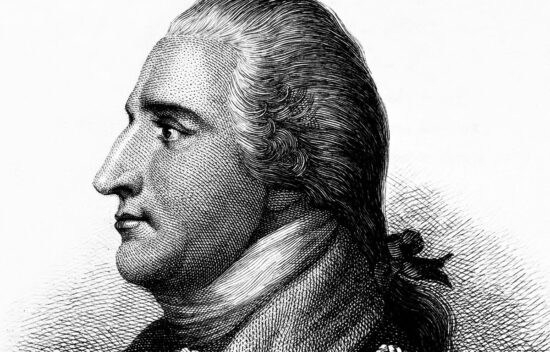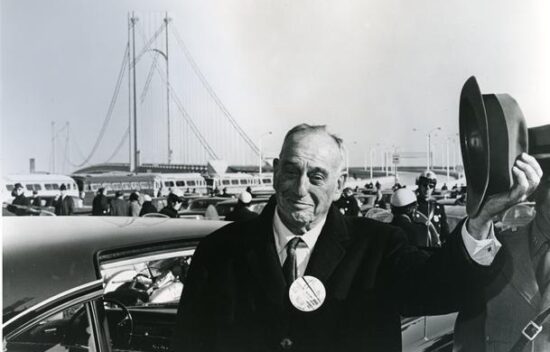Heroes and Villains
Resource Overview:
In a nation founded on constitutional principles such as individual liberty and consent of the governed, civic virtue must be central to all civic education. To teach civic virtue is to help preserve our republic by developing the character of students. This civic resource avoids shallow topics, inviting teachers and students to dive straightforwardly into robust, history-based topics. Through rich narratives, critical questions, meaningful discussions, and personal application, teachers and students will examine the civic virtue assumptions of our nation’s Founders and their relevance today.
Educator Facilitation Guide
Special Features:
- 24 narratives that convey stories of individuals who faced decisive moments in which to practice virtue or vice – including Benedict Arnold, Clara Barton, Frederick Douglass, and more.
- Journal exercises that encourage deep reflection of individual students’ hearts and minds.
- “Virtue in Action” supplements provide ideas and activities for students to practice habits of civic virtue in their schools and communities.
- Cross-curricular connections make it easy for faculty and staff to work together toward the same goals within the context of their own classrooms.
- Engaging videos that provide additional context in a different medium meeting the needs of diverse classrooms.
Teachers Say:
“These lessons serve a vital purpose and prompts very interesting conversations that connect past events to current events and to students themselves. Listening to the students describe their perspectives about these virtues was eye opening and a great way to get to know the students in depth.” Wendy Wuenker, Florida Educator
“All schools, at any level, can be enriched by character education.” Kathy Hagee, California Educator
“The lessons were valuable because they made the students reevaluate their own ethics. Although many of our students are “good” people, these lessons help reinforce the virtues and standards that we would like our students to embrace and display as citizens. – Pilot Test Educator
Create playlists, save resources to your library, and access answer keys – Sign up for an educator account!
27 Lessons
 Lesson
LessonDefining Civic Virtues
Through this introduction lesson, students will understand why it is important for engaged citizens to practice civic virtues to build and support a healthy civil society.
 Lesson
LessonBenjamin Franklin and Civic Virtue
How did Benjamin Franklin’s develop and practice virtue? Help students identify ways they can make being virtuous a habit.
 Lesson
LessonAaron Burr and Hubris
What is the difference between self-serving ambition and noble ambition? Explore the character and career of Aaron Burr.
 Lesson
LessonAlice Paul and Responsibility
How did Alice Paul respond in the face adversity? Explore how her choice to act responsibly.
 Lesson
LessonAugust Landmesser and Courage
How did August Landmesser display the virtue of courage? Explores the significance of courage in a society built on democratic principles.
 Lesson
LessonBenedict Arnold and Dishonor
What are the dangers of deception and lack of integrity in a civil society? Explore the vice of dishonor by examining the story of Benedict Arnold.
 Lesson
LessonChe Guevara and Injustice
How did the Communist system Che Guevara fought for and helped install lead to great injustice in Cuba and contribute to global communist injustice?
 Lesson
LessonClara Barton and Responsibility
How did Clara Barton dedicate herself to the responsibility for caring for others throughout her life? How can students act responsibly in their own lives?
8 Videos
 Video
VideoAaron Burr and Hubris: Heroes & Villains
How do you know when ambition is self-sacrificing and when it is self-serving? Explore the story of Aaron Burr in this video feature of BRI's Heroes and Villains Curriculum to help determine how he exhibited the vice of hubris. Heroes and Villains uses narratives to discuss the concepts of civic virtue in all classrooms. Each virtue narrative includes corresponding discussion guides, journal templates, a toolbox with additional activities, and suggestions for further reading on each topic or virtue.
 Video
VideoBenedict Arnold & Dishonor: Heroes and Villains
Why is acting dishonorably destructive to a healthy political system and civil society? Explore the story of Benedict Arnold in this video feature of BRI's Heroes and Villains Curriculum to help determine how he exhibited the vice of dishonor. Heroes and Villains uses narratives to discuss the concepts of civic virtue in all classrooms. Each virtue narrative includes corresponding discussion guides, journal templates, a toolbox with additional activities, and suggestions for further reading on each topic or virtue.
 Video
VideoClara Barton and Responsibility: Heroes & Villains
How does an individual’s responsibility to their fellow citizens affect the health of a civil society? Explore the story of Clara Barton in this video feature of BRI's Heroes and Villains Curriculum to help determine how she exhibited the virtue of responsibility. Heroes and Villains uses narratives to discuss the concepts of civic virtue in all classrooms. Each virtue narrative includes corresponding discussion guides, journal templates, a toolbox with additional activities, and suggestions for further reading on each topic or virtue.
 Video
VideoDwight Eisenhower and Responsibility: Heroes & Villains
How can a leader build trust with the people they lead by taking responsibility for their decisions and actions? Explore the story of Dwight D. Eisenhower and the D-Day invasion. In this video determine how he exhibited the virtue of responsibility specifically during the Eisenhower D-Day speech.
 Video
VideoElizabeth Eckford and Courage: Heroes & Villains
Why is individual courage necessary for the success of the larger community or civil society? Explore the story of Elizabeth Eckford in this video feature of BRI's Heroes and Villains Curriculum to help determine how she exhibited the virtue of courage. Heroes and Villains uses narratives to discuss the concepts of civic virtue in all classrooms. Each virtue narrative includes corresponding discussion guides, journal templates, a toolbox with additional activities, and suggestions for further reading on each topic or virtue.
 Video
VideoHuey Long and Immoderation: Heroes & Villains
Why is moderation important in a civil society, leadership, and in the general public? Explore the story of Huey Long in this video feature of BRI's Heroes and Villains Curriculum to help determine how he exhibited the vice of immoderation.
 Video
VideoThe Schechter Brothers and Integrity: Heroes & Villains
Why is it important in a healthy civil society for individuals to act with integrity? Explore the story of the Schechter Brothers in this video feature of BRI's Heroes and Villains Curriculum to help determine how they exhibited the virtue of integrity.
 Video
VideoThomas Jefferson and Prudence: Heroes & Villains
How can prudence help leaders make decisions in difficult circumstances? Explore the story of Thomas Jefferson in this video feature of BRI's Heroes and Villains Curriculum to help determine how he exhibited the virtue of prudence. Heroes and Villains uses narratives to discuss the concepts of civic virtue in all classrooms. Each virtue narrative includes corresponding discussion guides, journal templates, a toolbox with additional activities, and suggestions for further reading on each topic or virtue.




















